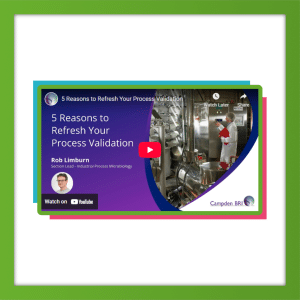
Attributable to Jerry Lewis, Chief Technical Officer, Kilfrost
There are currently more than 2,000 breweries in the UK – the highest number in almost a century, with increased demand putting pressure on brewers to continually improve efficiency and safety as they serve growing numbers of customers. However, it’s clear that some demands for greater efficiency can negatively impact on consumer safety. The human impact of this was brought into sharp focus by recent deaths in Brazil, traced back to the contamination of beer with diethylene or ethylene glycol in the Backer Brewery.
For too long, there has been confusion about the true definition of ‘non-toxicity’ when it comes to anti-freeze and heat transfer fluids, and the myth continues to circulate that choosing a safer product will ultimately mean less efficiency. This is simply not the case. While efficiency is clearly important, there should be no compromise when it comes to safety. The recent Brazil deaths highlight the tragic outcome of a toxic fluid coming into contact with product intended for consumption, and the site is still closed while investigations continue. Whatever conclusion the investigators reach, the incident should startle the industry into action, acting as the prompt for a long-overdue review of the way fluids are marketed to breweries, and a decision on exactly when the phrase ‘non-toxic’ can and should be used.
One of the major issues is that definitions vary across the world, so a level of toxicity which may be deemed safe in one country could be seen as unsafe in another. The second is the lack of worldwide adoption of an accreditation scheme which would enable brewers to see at a glance whether a product had been properly endorsed as safe for incidental human contact. However, these definitions and accreditations do exist. They just need to be adopted at a universal level across industry.
The US Food and Drug Administration (FDA) has two broad categories for materials which may come into contact with food. These are Generally Recognised as Safe (GRAS) where a long history of safe use has exempted chemical substances from the usual food additive tolerance limits, and Food Safe Material which also considers the safe threshold values for use of each substance.
Any chemicals listed as GRAS or Food Safe Material by the FDA can be accredited by the NSF International. Their ruling on the safety of anti-freeze formulation is solely based on formulation components, so they would not accredit any ethylene glycol-based products as they are not included in either of the categories.
NSF Certification is the only way to ensure inherent safety and can and should be used as a mark of reassurance for breweries choosing anti-freeze or heat transfer fluids. It gives the industry the chance to use the phrase ‘non-toxic’ confidently, knowing exactly what it means. It is not that one manufacturer has deemed its own products to be safe, but that a trusted organisation has been able to independently verify that, should the worst-case scenario happen and a leak occur, those consuming the product before the incident was discovered would not come to harm.
While manufacturers have an obligation to market their heat transfer and anti-freeze fluids responsibly, it is up to brewery owners and managers to uphold those standards and ensure the decisions they make on which fluids to use are based on fact not spurious ‘non-toxic’ claims – their brand depends on it, but more crucially so too does the safety of their consumers.
For more information, visit Kilfrost.





